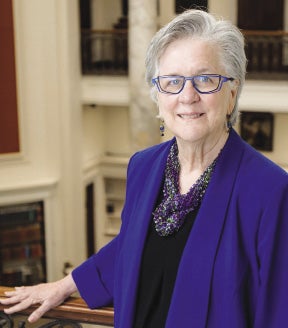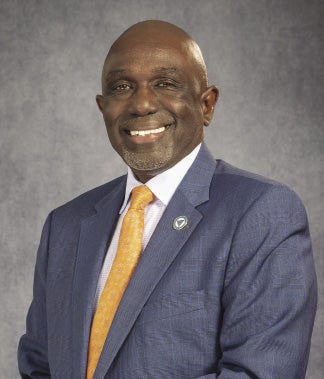As leaders, they ably represented two of Central Massachusetts’ longest-running institutions: each intricately tied to Isaiah Thomas. One turned his bequeathed library into the world’s preeminent repository of pre-20th-century print materials in what is now the United States. The other invoked the patriot printer’s name for its annual award to citizens who serve Worcester with distinction.
Get Instant Access to This Article
Subscribe to Worcester Business Journal and get immediate access to all of our subscriber-only content and much more.
- Critical Central Massachusetts business news updated daily.
- Immediate access to all subscriber-only content on our website.
- Bi-weekly print or digital editions of our award-winning publication.
- Special bonus issues like the WBJ Book of Lists.
- Exclusive ticket prize draws for our in-person events.
Click here to purchase a paywall bypass link for this article.
As leaders, they ably represented two of Central Massachusetts’ longest-running institutions—each intricately tied to Isaiah Thomas. One turned his bequeathed library into the world’s preeminent repository of pre-20th-century print materials in what is now the United States. The other invoked the patriot printer’s name for its annual award to citizens who serve Worcester with distinction.
The overlap between American Antiquarian Society President Emerita Ellen S. Dunlap and former Telegram & Gazette Editor Harry T. Whitin doesn’t end there. Both can trace family ties to 17th-century Blackstone Valley villages, and each continues to call the area home. They’ve also been caretakers to acres of newsprint.

The most relevant connection of all? Dunlap and Whitin have devoted their retirement years to serving organizations that touch the lives of many in our region.
“I’ve stayed involved with Mass Humanities, and I’ve been the treasurer, bookkeeper and finance manager of the Worcester Cultural Coalition. That keeps me busy,” said Dunlap, a West Boylston resident who capped 28 expansion-filled years with her 2020 AAS retirement. She’s more recently added board roles with Worcester’s Rural Cemetery and the renamed Icon Museum and Study Center in Clinton.
She also extends her expertise to AAS President Scott E. Casper and staff when needed.
Whitin’s post-T&G life—he stepped away from the since-struggling newspaper of record in 2009 after 16 years as editor and 44 overall—has included key contributions to the Whitinsville-based Blackstone River Valley National Heritage Corridor. His celebrated reunions of 100-plus far-flung Whitin relatives, and 12 years of toil on a nearly finished historical mini-documentary, also keep the 78-year-old in motion.
“It’s interesting to me because I grew up at the failing end of the textile business, and nobody in my family talked about preceding generations. So when I retired, I started looking back,” he said.
“I’m a seventh-generation descendant of Paul Whiting, who was a blacksmith who dropped the ‘g’ from Whiting and became the first Whitin. That interested me,” he said. After a chance encounter with the Heritage Corridor’s then-superintendent in 2010, “I was invited to get involved. I’ve been on the board that manages it ever since.” As chairman, Whitin helped guide the transition from a federal commission that managed the Corridor to an independent nonprofit affiliated with the National Park Service. He currently serves as a director and vice chairman.
Dunlap’s and Whitin’s tenures leading enterprises with 371 years of combined history brought meaningful moments. The former’s 2014 meeting with U.S. President Barack Obama to receive the National Humanities Medal on behalf of AAS stands out. But an early revelation about the expansiveness of her longtime employer still sticks.
“I always fall back on something that happened when I first went to the Society. We have 2 million newspapers, and have claims to such comprehensive collections. I just thought to myself, ‘Well, I’ll just see what we have here,’ ” Dunlap recalled of her slight skepticism. She scoured the archives for a small-town Texas newspaper for details about her father’s family, and soon uncovered an 1876 article with biographical details tied to his great-great grandfather’s death. The fact that he inherited the English world’s most common name, John Smith, added to the wonder.
“That’s what I love about history: Finding connections with everyday things is what makes it interesting,” she said.
Whitin cites his close relationship with the late Telegram & Gazette associate editor and columnist Sid McKeen as a career highlight, as well as The New York Times Company’s 14-year ownership. “Its devotion to the core values of journalism was unmatched,” he said. It was a different story with the penurious previous owner: Chronicle Publishing Co.’s 13-year reign “was very turbulent. Stability was a constant struggle.”
His rebuffed attempt (along with Polar Beverages CEO Ralph Crowley, Jr.) to buy the publication in 2013 remains a bitter disappointment.
Instead, the Times Co. sold the T&G to John Henry, whose quick flip of the paper to GateHouse Media’s predecessor accelerated its spiral. “I will frankly say that I have never felt the same about the Red Sox since John treated us the way he did with that sale,” Whitin said.
Whitin holds out hope for local media. “I think the future lies with nonprofit and community-based journalism. We need to pull the two of those together,” he said.
Dunlap and her husband, Frank Armstrong, are parents to longtime New England Botanic Garden at Tower Hill Visitor Services Manager Livvie Rowell, and have one grandson. Whitin, who resides in his Westborough home of 50-plus years with wife Lucy, boasts two successful children, Hank and Kate, and two grandchildren.

Educator Robert Johnson treasures his working time in Central Mass. The president of now-defunct Becker College from 2010 through 2017 has kept his leadership recipe simple while moving on to presidencies at UMass Dartmouth for three years and current perch at Springfield-based Western New England University. “The biggest thing I’ve learned is the importance of showing up, as a leader. Being visible and having a presence,” he said.
Johnson, a father of two who still resides in Southborough with his wife, Michelle, fondly recalls his introduction to the city’s power structure as an outsider and person of color. “They all embraced me ... and made sure I got ‘in the room.’ That speaks volumes about the collaboration of the Worcester community,” he said.
It also led to his involvement in the First Wednesday Group which featured leaders from other Worcester-area colleges, chambers, nonprofit organizations, and city and business executives.
“To get together and talk about how to make the region better was really important and I think it made a difference,” he said, citing progress on the Worcester-to-Boston commuter rail as one success during his involvement.
A worthy addition to any list of prominent movers in the 35 years since Worcester Business Journal’s birth is former Hanover Insurance Group President and CEO Frederick H. Eppinger, who retired from the firm in 2016 after 13 transformational years.
He currently serves as chief executive of Houston-based Stewart Information Services Corp.
Eppinger was feted in June as one of Inman’s 2024 Best of Finance Awards winners—the second year in a row he’s earned that accolade. The award spotlights those at the forefront of the mortgage and financial services industries.
In addition to directorship roles at Stewart and QBE Insurance Group, he’s served as Executive Board chairman at Centene Corp. since 2023.
